Marisa Hordern: "It used to be enough to just create beautiful things, but now it's more about what we stand for"
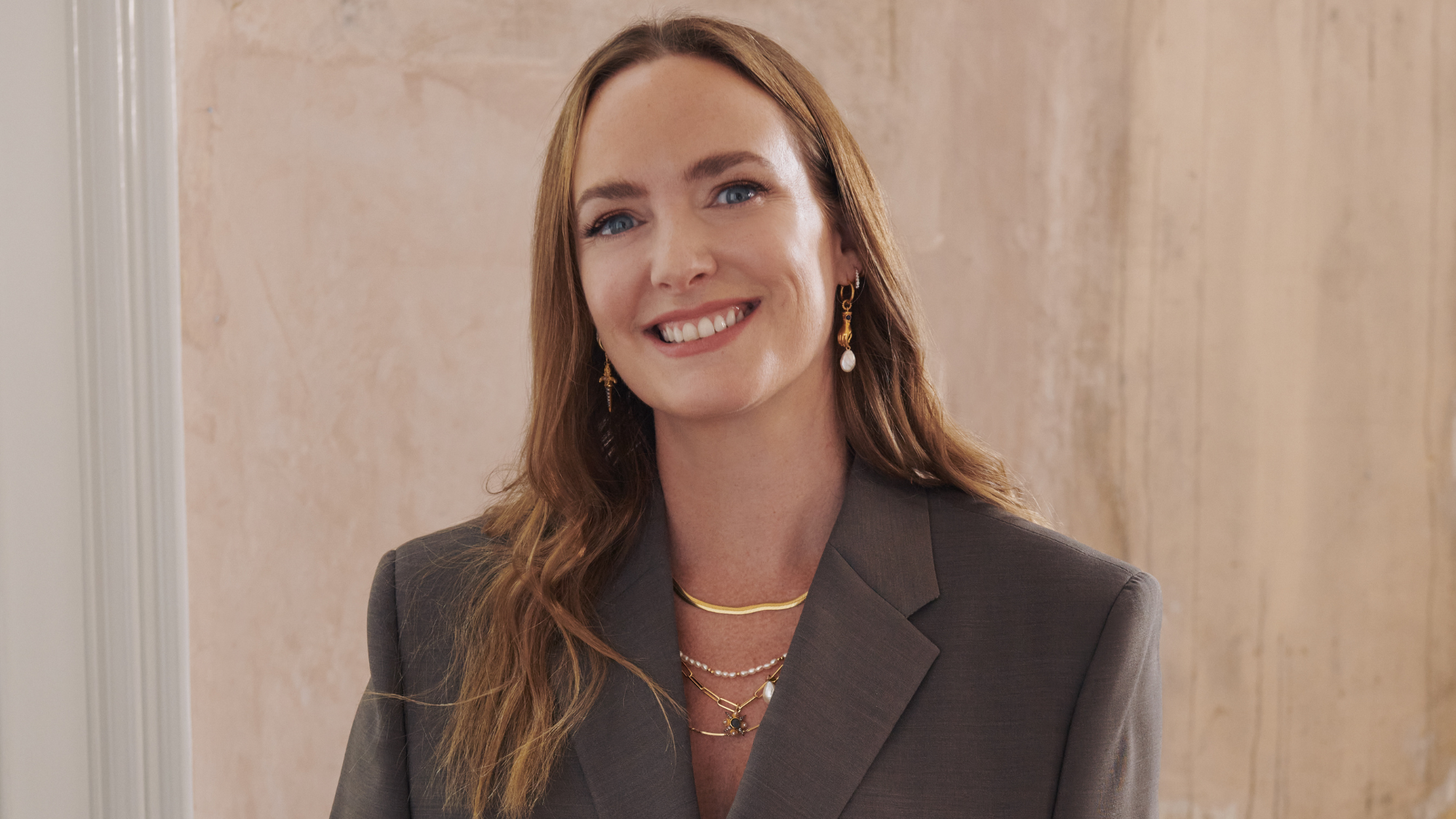

Missoma is undoubtedly a business to watch.
A pioneer in demi-fine jewellery, the London-based brand has become a cult-favourite for millennials everywhere. In fact, it's known unofficially as the label that celebrities and influencers choose to wear.
This is something that can be credited to CEO and founder Marisa Hordern and her hardworking team - or "family" as they are known, with the company championing authentic relationships, creative storytelling and innovative design.
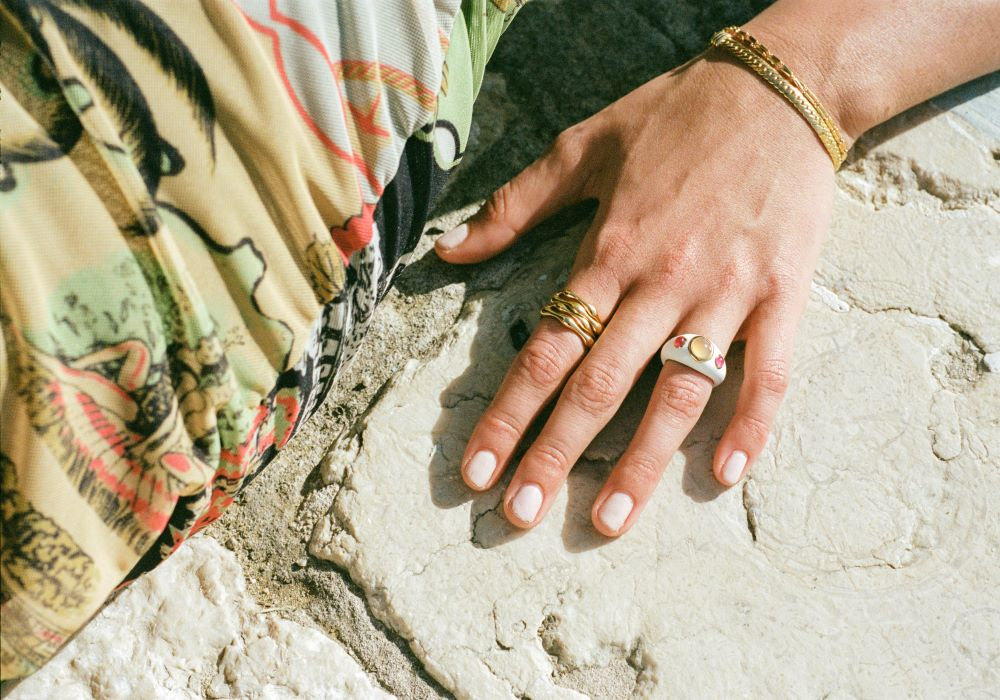
But, Missoma is far more than a jewellery brand. Under Marisa's leadership, it has become a community that is dedicated to spreading empowerment and making a positive impact.
And from their sustainable commitment to planting trees with female-run Tree Sisters (1 million trees by 2026), to their empowering new Good Vibes collection, positive energy runs through everything they do.
"We sell beautiful, shiny things, but we also want to have a more positive impact," Marisa told Marie Claire UK at the brand's Good Vibes Getaway. "I think it's really important for our community."
As Missoma continues to thrive - winning the Queen's Award for Enterprise just this year, we wanted to find out more about the ever-growing business and heart behind the brand.
Celebrity news, beauty, fashion advice, and fascinating features, delivered straight to your inbox!
Features Editor Jenny Proudfoot sat down with the wonderful Marisa Hordern to dive deeper into Missoma as a company, from the importance of collaboration and the power of positivity to the key strides it's making in sustainable jewellery...
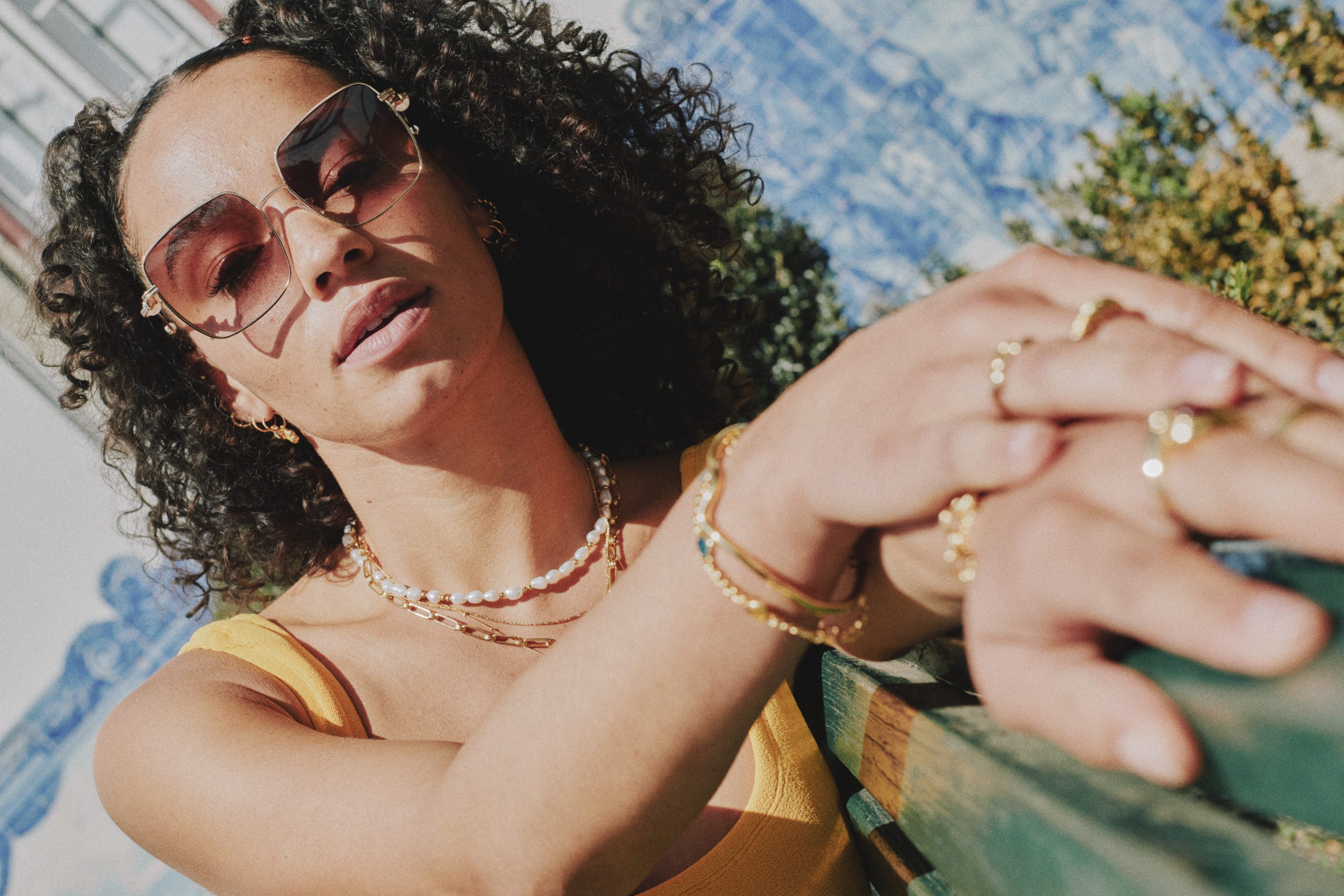
Missoma feels like such a positive brand. Is that an important message for you to extend to your community?
Definitely. That’s the message we want to spread with our new Good Vibes collection that we launched this summer. We've all been through a really hard time and we've all felt it in different ways - no one's been unaffected. So, now it's about putting out positivity and really trying to focus on that - I think it's really important for our community. You know, we may be selling elegant, shiny things, but we also want to have a more positive impact. In the past, it was enough to just create beautiful things but now it's more about what we stand for. I think that's why our Harris Reed collaboration, for example, was so important to us, because it really stood for something. It had a mission, we were really proud to stand by Harris and it was all about self expression. It was about there being no rules and about everyone being able to be who they want to be, which is a big part of what we believe in.
We've spoken before about the power of positivity in business...
I really do believe in the power of positivity - it is honestly one of the most important things, and it's crucial in business. I think it's all about how you spin things in your own mind every day, and then how your team subsequently spins it. Because if you give out a positive and can-do attitude, then they will come back to you with the same. I do struggle with people who are negative and who have a can't-do attitude because I think that there's always ways around things. It’s about problem solving - it doesn't have to be a perfect solution, it has to be a workable solution. Every day when I wake up, I don't go: "Oh, God, what problems are we going to have today?", which honestly could be my mindset because there will always be a problem. Instead, I go: "OK, what am I going to solve today?". I can't tell you what a difference it makes - it's so important and it changes everything.
The Missoma team is so cohesive. How crucial is teamwork to the brand's success?
Collaboration is one of the pillars of Missoma - it is literally everything to our brand. Everyone gets together regularly and we have a big emphasis on the team giving each other call outs and praise. Back in my first job, the senior manager would take credit for everyone's work, and so I’ve always wanted to make sure that we give credit to anyone who's worked on something. That’s a big part of our culture and something I’m really proud of. If we're presenting something design-related at Kitchen Table for example, I will often ask the design team to present or to come up with me, because I don't like taking credit if it's been a team effort. Or I'll say, "This is Basha's baby" or "Frankie worked on this - massive call out to Frankie". It's something I really believe in.

Sustainability is a core focus for the MC reader. Is it ever possible for a jewellery brand to be fully sustainable?
It's possible to be fully sustainable in terms of health and safety, social welfare, economic welfare and even recycled metals - but there are still areas that need work. Being eco-conscious has always been important to Missoma - it's very natural to us. We've worked with a sustainability consultant, partnered with Vaayu, become a member of the responsible jewellery council, and have applied to be carbon neutral certified, but two areas where we struggle are pearls and gemstones. We can go to reputable sources, but the industry as a whole is not where it needs to be. It’s getting better, but it will still take some time.
We don’t call ourselves a sustainable brand - no one's going to be fully sustainable. But we are a brand that's dedicated to being better. Sustainability for us means making positive steps towards having more responsible production, a consciously-sourced supply chain, and constantly striving to improve what we are doing. We're always transparent where it's not perfect.
How can we inspire more people to shop sustainably - especially when it comes to jewellery?
We all know that there's a major climate crisis right now, and from the Portuguese forest fires to the 42-degree heat in Europe, the world is showing us. So, I think because of that, demand for more sustainable practice is higher than ever. The consumer is now actively looking to see if you are offsetting your carbon footprint and using recycled materials. It's becoming the norm to look for that, so we're actually inspired by the customer as much as they're inspired by us. We all feel the need to be as responsible as we can - be it in the home, with the way we choose to live, or with the brands we buy. Sustainability used to be a byword, but now most customers understand the work that goes in behind the scenes - they're more educated on what is required and they are requesting that as a given, as they should be.
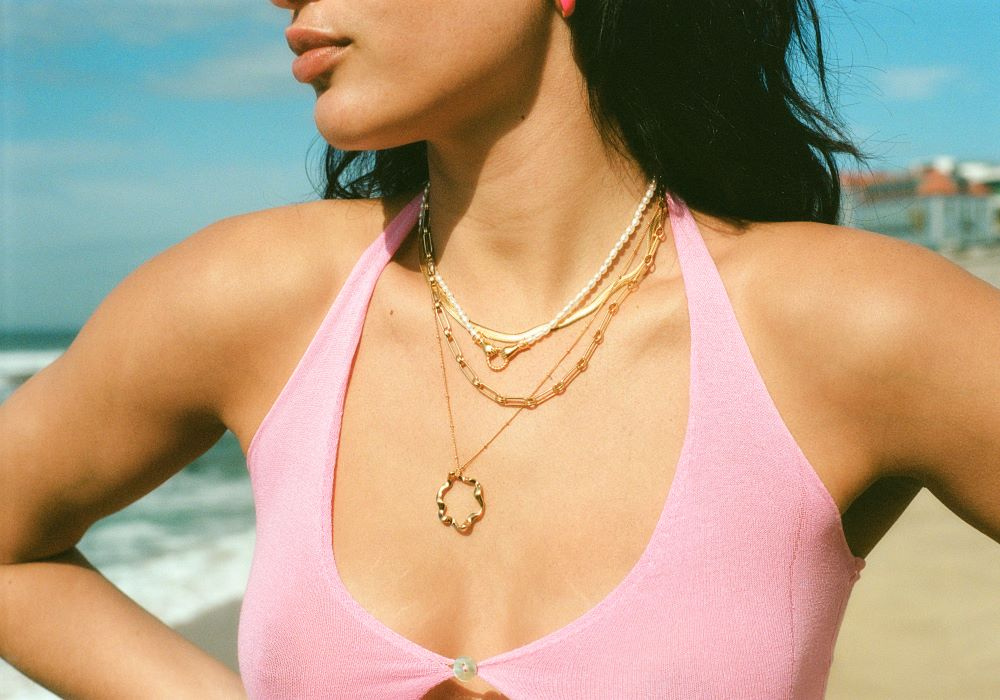
Why is it important for you to push not just Missoma forward, but the whole industry?
No one person, one brand or one company is ever going to be able to achieve what a collective can. Doing it all together just means we’re putting more pressure on the supply chain to progress and on suppliers to prove elements of their business. It used to be exceptional to demand more responsible production and conscious sourcing - certain brands asked for it, but most didn't, so it could be ignored. Whereas I think now, if everyone asks for it as part of the norm, it cannot be avoided. Suppliers will need to be compliant in order to get the business. In fact, I've actually found that my suppliers have really embraced it, and are proud when they get the certification to prove it. So I think it's just about taking everyone on the journey with you, whether that's your suppliers, partners, or customers.
Do you have any advice for CEOs looking to improve their practices?
I think the first thing is not to be overwhelmed by the sheer enormity of it, because we felt like that at the beginning. But none of us are expecting anyone to be perfect - you literally just need to do it topic by topic, and bit by bit. Ask yourself, what are the three key problems that we have, that we can improve on? And, what are the three key goals that we can set ourselves for this year? It's just about addressing those, and adding three to five more each year. If you don't achieve them, that's OK. Explain why it's taking longer than you thought or why it's harder than you expected. Just be transparent with your customer because they will understand. I think the other thing that really helps is getting the whole team on board. You will be surprised by how many of them are so naturally passionate about it - people want to work at a company that values being as responsible as possible and trying to improve its processes. They respect the brand and working culture more for it, so make it a collaborative group effort. At Missoma we live by the motto that anyone can have a good idea and it is amazing to see the ideas that people from every department you can imagine come up with. Bring the team on the journey with you and you'll be surprised by how much they'll help you.

What is your golden business advice for anyone?
You have to persevere - especially if it's your own business. There are days when you think, what am I doing? Days when you feel like everything's against you, but you just need to persevere. You can't let yourself get disheartened because you're the one that is leading the vision for the business and the rest of the team. I think that's really important - I live by that. And my other piece of advice would be to surround yourself with people that are experts where you aren't. You can't be good at everything and I think it's really important to be aware of your weaknesses. Then you can build up a team of people that you not only really trust, respect and enjoy working with, but also that naturally shine in those areas that you might not. And that's how you get a truly collaborative team.
What is the biggest lesson you've learned in business?
There are so many, but I think maybe one is not to take everything so personally. If something goes wrong or if the team are upset, I get upset. And I think you do need to sometimes slightly separate yourself from it all. Otherwise you live, breathe and eat it, and it can drive you into the ground. You can actually become burnt out, exhausted, even physically sick from it, and so I think there is an element of needing to protect yourself. My CFO once told me that it would be worse for her family if she got ill than her daughter because if she's ill, she can't look after her daughter. The most important thing is that she’s there to look after child, and I think that's the same kind of thing with a business. I feel like I need to be there to inspire, encourage and lead. To be their cheerleader and to give them that energy that they tell me they miss when I'm not there.
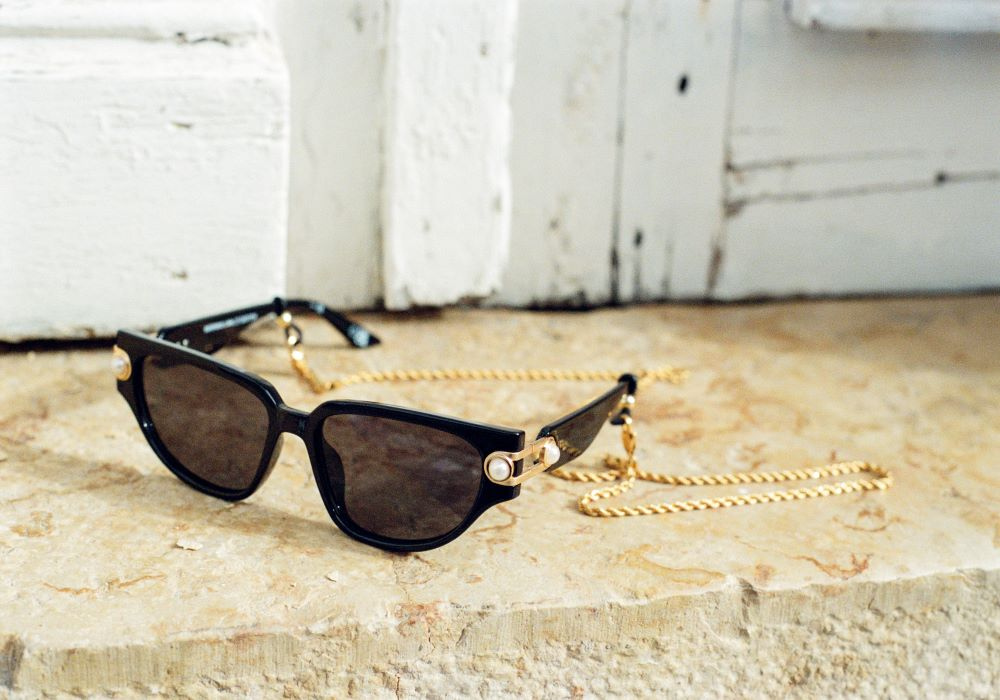
What sets Missoma apart from the rest of the jewellery industry?
We like to push boundaries and I think we're very innovative in our approach. We like to do new things, we never stand still and we don't just rely on the same old, same old. We were one of the pioneers to demi fine, we were very early to online and then we were very early to social. Our jewellery collaboration with Lucy Williams was the first jewellery collaboration there was, then we did the first gender fluid collaboration which is super important to us and what we stand for. Then, take our more recent collaboration with Le Specs - that was unexpected. I think it's really important to keep your brand DNA, but you also have to constantly try to be innovative and change things up.
You are also the jewellery brand that celebrities choose to wear...
Our relationships with celebrities are very authentic, and people can tell that. I think that is very much the difference with Missoma too. We don't pay for these amazing celebrities to wear our jewellery, they choose to wear it on their days off. Of course you'll see it on the red carpet, but mainly you'll see them wearing Missoma in their personal time - whether that's off duty on a plane or to a farmer's market in LA. That's what differentiates our brand - innovative design, really creative storytelling, and authentic relationships.

What's next for Missoma?
There are so many goals. We obviously want to be that go-to jewellery brand for fashion-forward innovative design that is affordable and giftable. And that will remain as we expand into new markets and other categories. I've always said, "we don't sell a product, we sell a look", and that look is all about self expression and layering - so it extends to other categories. Our sunglasses collab with Le Specs was such a brilliant pairing because the same girl who wears Le Specs wears Missoma, and it worked. So, we're excited about more fashion accessories to come. We are also so excited to open our first store, and having it be very much experience-led for our customers - I think that's really important. Everything that we're working on will really build our community - that's what we're all about.
Shop the Good Vibes collection and more at Missoma now.

Jenny Proudfoot is an award-winning journalist, specialising in lifestyle, culture, entertainment, international development and politics. After working at Marie Claire UK for seven years - rising from intern to Features Editor - she is now a freelance contributor to the News and Features section.
In 2021, Jenny was named as a winner on the PPA's '30 under 30' list, and was also listed as a rising star in journalism.